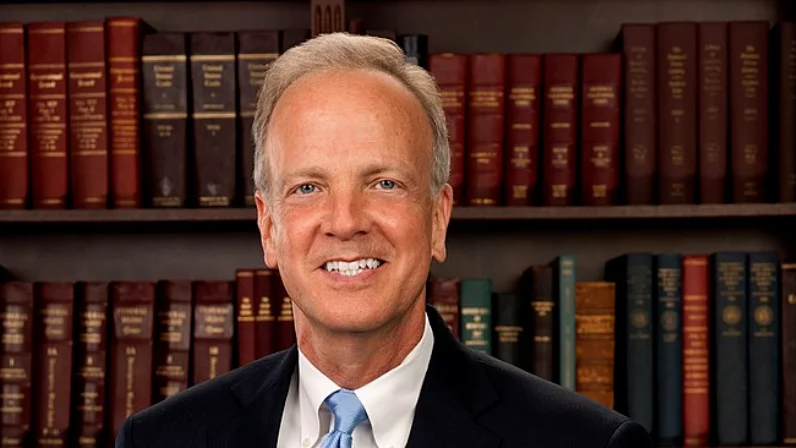Sen. Jerry Moran, US Senator for Kansas | Official U.S. Senate headshot
Sen. Jerry Moran, US Senator for Kansas | Official U.S. Senate headshot
U.S. Senator Jerry Moran from Kansas is spearheading an initiative alongside 22 other senators to urge the Federal Communications Commission (FCC) to update broadcast ownership regulations. The aim is to enable local broadcasters to compete more effectively with large media corporations.
Joining Senator Moran in this call are Senators Todd Young, Ted Budd, James Lankford, Cynthia Lummis, Tim Sheehy, Shelley Moore Capito, Kevin Cramer, John Curtis, Marsha Blackburn, Tommy Tuberville, Dan Sullivan, John Barrasso, John Cornyn, Chuck Grassley, Steve Daines, Pete Ricketts, John Boozman, Susan Collins, Joni Ernst, John Hoeven and Tim Scott.
In their letter to FCC Chairman Carr and the commission members, the senators emphasized that "the fast-evolving media marketplace has made broadcast ownership regulations in urgent need of modernization." They argue that updating these rules will help broadcasters continue playing a crucial role in American democracy by supporting local journalism and benefiting communities and public interests.
The senators' statement highlighted the challenges faced by local broadcasters due to outdated regulations initially established in the 1940s. Despite some adjustments over the years, these rules have not kept pace with advancements such as digital platforms and streaming services. As a result, local broadcasters now compete not only among themselves but also against major technology companies for audience engagement and advertising revenue.
The call for modernization reflects concerns about the survival of local broadcasters amidst technological changes that dominate news and information access. The senators noted that while technology firms have reshaped the media landscape significantly impacting local stations' operations—broadcasters remain key providers of trusted news coverage.
The appeal underscores the importance of modernizing broadcast ownership restrictions to empower broadcasters further. By doing so they can invest more resources into journalism efforts which are critical as newspapers face closures nationwide. Such updates would also ensure that local stations can deliver reliable news content amidst growing competition from unregulated global tech giants.




 Alerts Sign-up
Alerts Sign-up